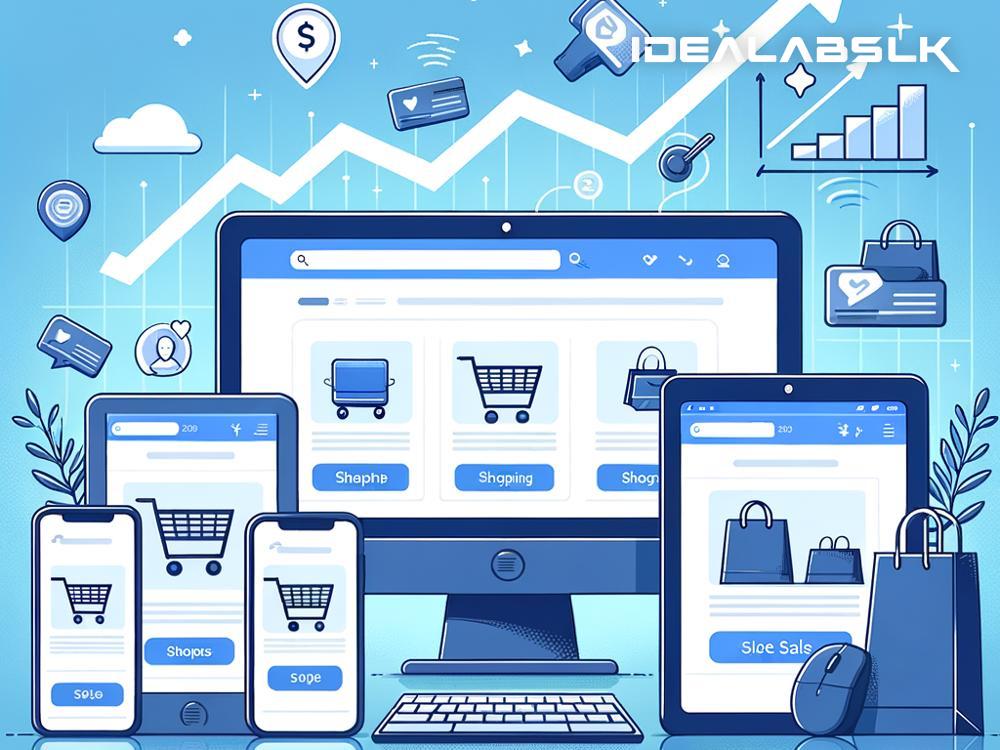The Role of Marketplaces in E-commerce Growth: A Simple Overview
In today's digital age, shopping has transformed from wandering the aisles of a physical store to scrolling through products on a smartphone or computer screen. This evolution has been largely driven by the advent of online marketplaces, which have become central to the growth of e-commerce. But what exactly are these marketplaces, and how do they contribute to the booming online shopping world? Let's break it down in a simple and straightforward manner.
What Are Online Marketplaces?
Imagine a huge digital mall, open 24/7, where you can shop from not just one, but countless stores selling everything under the sun. That's essentially what an online marketplace is. It's a platform where multiple sellers come together to offer their products or services to a vast audience of buyers. Examples of such platforms include Amazon, eBay, Etsy, and Alibaba, among others.
The Role of Marketplaces in E-commerce Growth
-
Bringing Buyers and Sellers Together: Online marketplaces remove geographical barriers, allowing sellers from anywhere in the world to connect with buyers looking for products they offer. This seamless connection not only broadens the options available to consumers but also opens up new markets for sellers.
-
Building Trust: Trust is a crucial factor in online shopping, and marketplaces help foster it by implementing buyer protection policies, showcasing seller reviews, and providing secure payment gateways. This reassurance encourages more people to shop online, further driving the growth of e-commerce.
-
Simplifying the Selling Process: Setting up an online store can be daunting, especially for small businesses and individual sellers. Marketplaces simplify this process by handling the technical aspects, such as website hosting and security, allowing sellers to focus on what they do best: creating and selling their products.
-
Offering Cost-Effective Solutions: For many sellers, particularly small businesses, the minimal setup and operational costs associated with selling on a marketplace make it an attractive alternative to establishing their e-commerce site. This cost-effectiveness encourages more sellers to venture into online sales, expanding the e-commerce ecosystem.
-
Innovating the Shopping Experience: Marketplaces are at the forefront of e-commerce innovation, constantly introducing new features like augmented reality previews, personalized recommendations, and easy checkout processes. These advancements make online shopping more convenient and enjoyable, drawing in more consumers.
-
Enhancing Consumer Insights and Data Analysis: The vast amount of data generated by marketplace transactions provides invaluable insights into consumer behavior, preferences, and trends. This information allows sellers to tailor their offerings and marketing strategies more effectively, while marketplaces use it to enhance the overall shopping experience, creating a virtuous cycle of growth and improvement.
-
Facilitating Global Trade: Finally, online marketplaces have played a pivotal role in globalizing e-commerce. They enable sellers to reach international markets without the need for a physical presence, making global trade more accessible for businesses of all sizes.
Challenges and Considerations
While online marketplaces offer numerous benefits, they also come with challenges. Competition is fierce, and standing out among thousands of sellers can be tough. Additionally, sellers must adhere to the marketplace's rules and fees, which can impact their margins and operational flexibility. Despite these challenges, the benefits and growth opportunities provided by marketplaces often outweigh the drawbacks for many sellers.
The Future of Marketplaces in E-commerce
As technology continues to evolve and consumer preferences shift, online marketplaces will play an increasingly vital role in the e-commerce landscape. Innovations such as virtual reality shopping, AI-driven personalized shopping experiences, and enhanced cross-border payment systems will further boost marketplace growth and attract more buyers and sellers.
Conclusion
The role of marketplaces in e-commerce growth is undeniable. They have fundamentally changed how we shop, ushering in an era of convenience, variety, and accessibility that benefits both consumers and sellers. As these platforms continue to evolve and adopt new technologies, their impact on e-commerce is set to increase, promising an exciting future for online shopping. Whether you're a seasoned seller or a newbie to online shopping, understanding and embracing the potential of online marketplaces can open up a world of opportunities.

